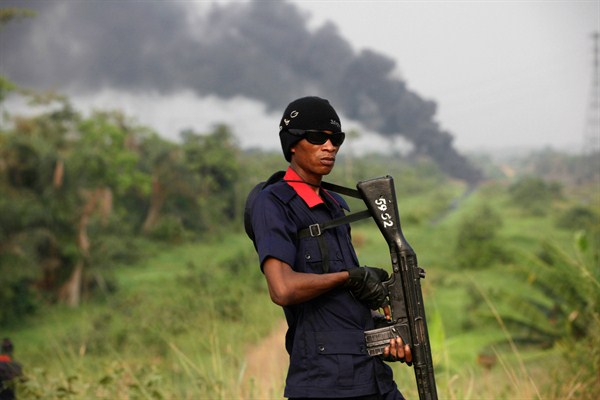Last week, Nigerian President Muhammadu Buhari vowed to crush the “vandals and saboteurs” responsible for a growing number of attacks on oil pipelines in the economically vital but historically unstable Niger Delta. Buhari, however, has offered mixed signals to southern Nigeria: In January, he renewed an amnesty program for ex-militants, the same month that Nigerian authorities issued an arrest warrant for a former Delta militant leader on corruption charges. Attacks have been on the rise ever since, targeting the Escravos pipeline, Shell’s underwater Forcados pipeline and a pipeline operated by Italy’s ENI in Bayelsa state.
Buhari’s carrot-and-stick approach to rising tensions should avoid a full-scale insurgency in the short term. But the depth of resentment in the Niger Delta, whose oil accounts for 70 percent of Nigeria’s state income, increases the risks in the longer run. Fears of political marginalization will exacerbate structural problems of underdevelopment and risk renewed unrest. Though the recent attacks do not bear the hallmarks of an organized insurgency, a confluence of factors could still drive militancy.
Buhari, who won the presidential election last year without the backing of southern Nigeria, will need to tread carefully to maintain the fragile peace. Open insurgency in the southern states would impact already falling government revenue, as well as create a second front for the Nigerian military, stretching troops thinly between the Niger Delta and the ongoing fight against Boko Haram in the country’s northeast.

